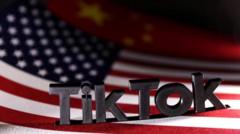John Fetterman's recent response to the assassination of CEO Brian Thompson marks a notable shift in his political rhetoric, embracing a more pragmatic approach amidst the complexities of partisan debates.
John Fetterman Charts Pragmatic Course Amid Political Turmoil

John Fetterman Charts Pragmatic Course Amid Political Turmoil
Senator Fetterman distances himself from extreme elements of his party in wake of UnitedHealthcare CEO's assassination.
In the aftermath of the shocking assassination of UnitedHealthcare CEO Brian Thompson in New York City, Pennsylvania Senator John Fetterman (D) has garnered attention for taking a measured stance. Known for aligning with progressive policies, Fetterman has begun to distance himself from the more extreme elements of his party, a transition that is noteworthy as the nation grapples with the implications of this tragic event.
The public reaction to Thompson's assassination has been starkly polarized, igniting heated discussions about public safety, corporate responsibility, and the broader ramifications of such violence in the political landscape. Fetterman’s response was significant for its clarity and reasonableness. Through a social media post, he condemned the murder unequivocally, stating, “The public execution of an innocent man and father of two is indefensible, not ‘inevitable.’” His refusal to tolerate illogical or hateful responses from within the left highlights his desire for a more humane discourse during crises.
Fetterman’s previous association with the progressive edge of the Democratic party—often seen as divisive by critics—has transformed into a more centered position as he explicitly rebukes the celebratory messages surrounding Thompson’s murder, which some more extreme left figures espoused. This response is indicative of a broader desire among moderate constituents for political leaders to navigate through complexities without resorting to inflammatory rhetoric.
The senator’s evolving tone signals a willingness to challenge the narratives that often emerge during crises. His approach highlights the urgent need for productive dialogue that bridges the political divide, particularly in an age increasingly marked by extremism. As debates about public safety and the role of corporate influence continue to unfold, Fetterman's reactions could mark a turning point in his political trajectory or be seen as a one-time divergence in a contentious era.
As America reflects on this tragedy and its implications, Fetterman’s response resonates with many who yearn for common-sense leadership that prioritizes reason over polarization. Whether this shift will prove to be a lasting change or a situational response remains to be seen, but for now, it has certainly set the stage for a reconsideration of political discourse in turbulent times.
The public reaction to Thompson's assassination has been starkly polarized, igniting heated discussions about public safety, corporate responsibility, and the broader ramifications of such violence in the political landscape. Fetterman’s response was significant for its clarity and reasonableness. Through a social media post, he condemned the murder unequivocally, stating, “The public execution of an innocent man and father of two is indefensible, not ‘inevitable.’” His refusal to tolerate illogical or hateful responses from within the left highlights his desire for a more humane discourse during crises.
Fetterman’s previous association with the progressive edge of the Democratic party—often seen as divisive by critics—has transformed into a more centered position as he explicitly rebukes the celebratory messages surrounding Thompson’s murder, which some more extreme left figures espoused. This response is indicative of a broader desire among moderate constituents for political leaders to navigate through complexities without resorting to inflammatory rhetoric.
The senator’s evolving tone signals a willingness to challenge the narratives that often emerge during crises. His approach highlights the urgent need for productive dialogue that bridges the political divide, particularly in an age increasingly marked by extremism. As debates about public safety and the role of corporate influence continue to unfold, Fetterman's reactions could mark a turning point in his political trajectory or be seen as a one-time divergence in a contentious era.
As America reflects on this tragedy and its implications, Fetterman’s response resonates with many who yearn for common-sense leadership that prioritizes reason over polarization. Whether this shift will prove to be a lasting change or a situational response remains to be seen, but for now, it has certainly set the stage for a reconsideration of political discourse in turbulent times.





















